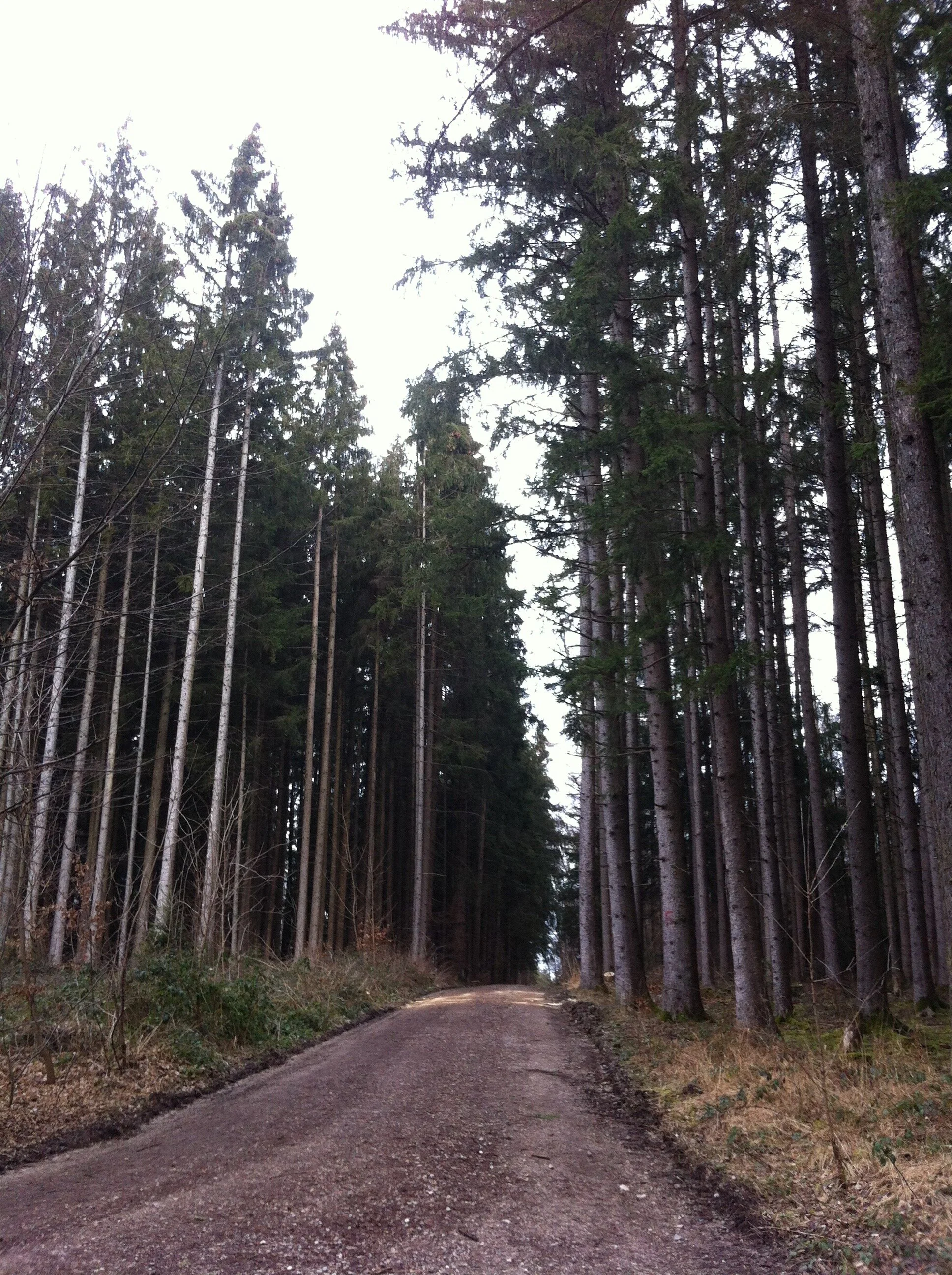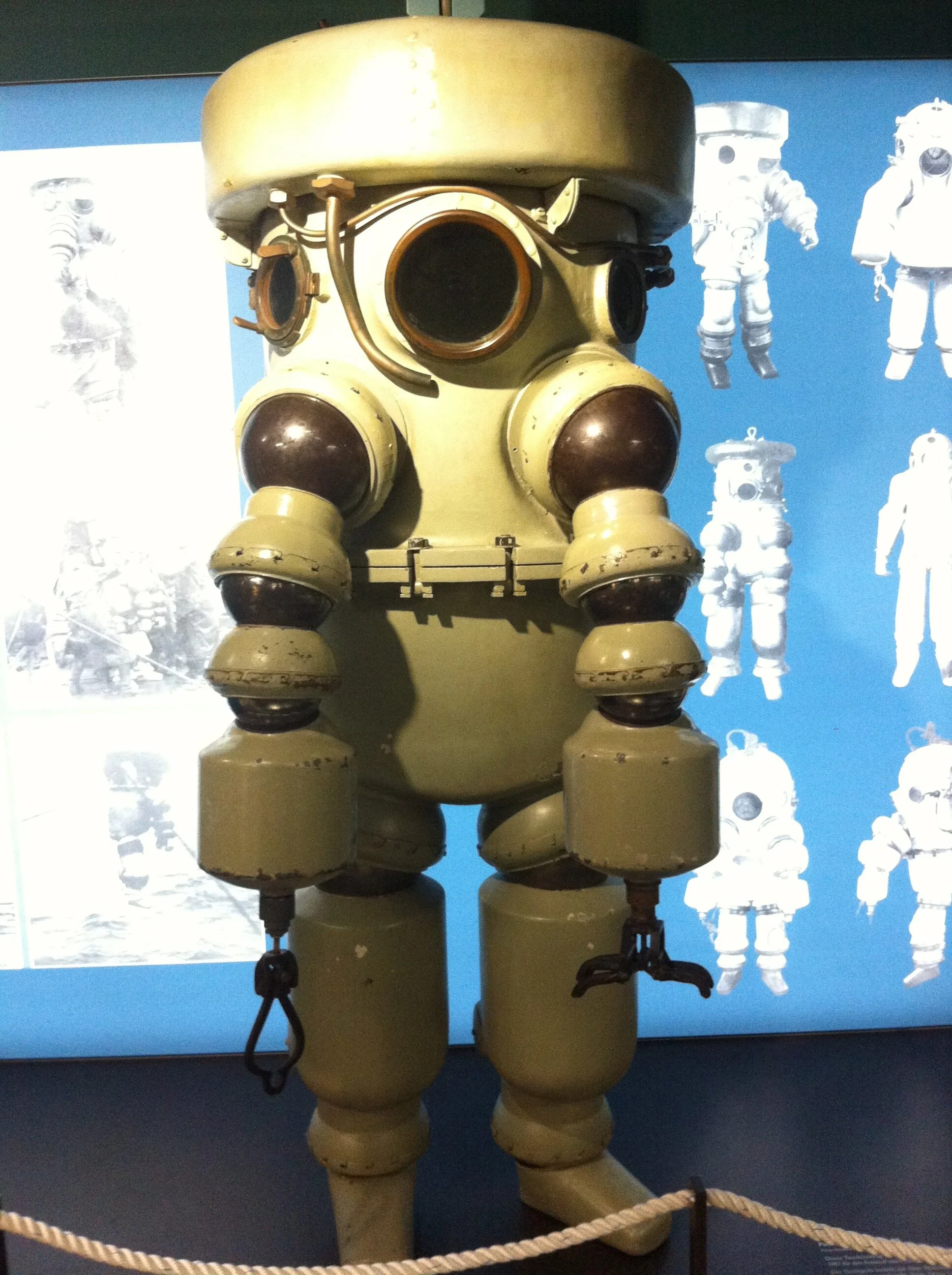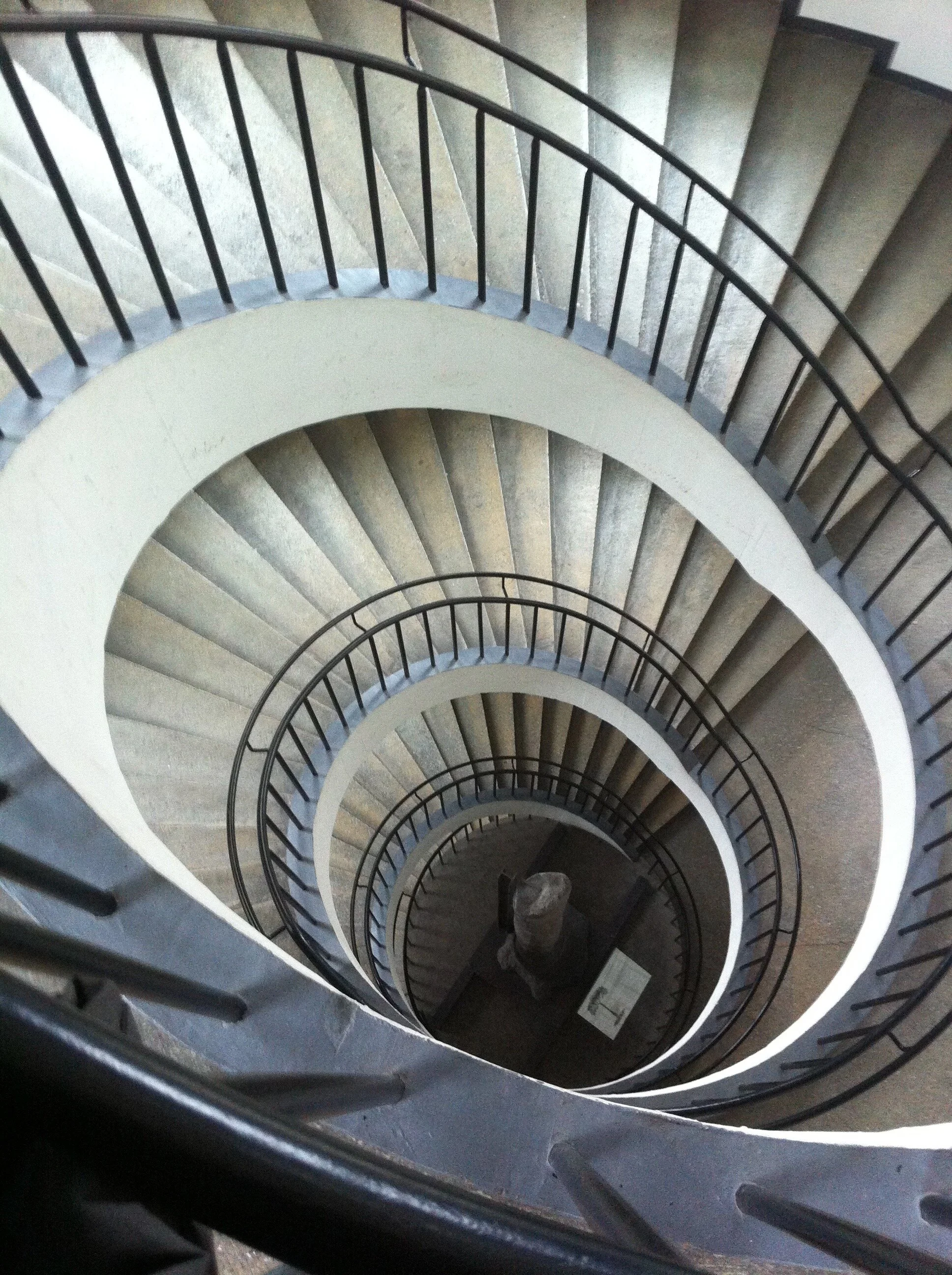Challenges in navigating a career change: lessons learned and my advice (from a post-doc parent, during a pandemic)
Okay, I'm going to let you in on a secret so you don't get the mis-impression that I've got this all sorted out. I'm still fumbling my way through this career transition - or, career pivot as I like to call it. I definitely haven't "completed" this transition. I think, as with a most things, this will take some time and some effort. I don't think there will be a magical point when I can say: "I'm done, I've transitioned into my dream career!" I think maybe the best I can hope for is to look back in a few years time and see that I managed to pivot my career path in a direction I am truly happy with and proud of.
I hope that having me hash this out and get my thoughts together on paper will maybe serve to help someone who is also contemplating (or has been forced into) a career change during this tumultuous time.
Maybe you can apply some of the same principles that I have and feel a bit more confident in taking some risks in your own career pivot.
I'll start by telling my story - if you're not interested in that, then you can skip ahead to my advice further down (about halfway through). I haven't really discussed my "science" side so far here on the blog, so I've gone into a bit of detail.
Let's start with some basics.
Where did I come from? What is my career history so far?
I have spent a lot of my life studying: after all the usual schooling, I went to university (in Melbourne, Australia - my hometown):
I first began a Bachelor of Arts and Bachelor of Science as a double degree. This enabled me to get the two separate degrees, but I got to shave off a year, compared to completing them consecutively (so 6 years became 5 years).
I then did a Science Honours year, which is composed of a research project that culminates in a thesis (it's similar to a Master's in Europe). I did this at a place called the Peter MacCallum Cancer Centre. It's a cancer research institute connected to a cancer hospital, where they do a lot of translational research. If you're not a scientist, this means that a lot of the research conducted there is aiming to convert into real outcomes for patients - whether that be new treatments, new drugs, new diagnosis methods and so on. For the fellow scientists out there, my research was on the tumour suppressor p53 and how it might be regulated by the E3 ubiquitin ligase E6AP.
Having enjoyed my honours year so much, I decided to embark on a PhD (or, as I’ve heard Oprah put it: a P.H.D.!!!!!). Thanks Oprah, yes, the emphasis on every letter is warranted - it's a tough slog. There's a reason why less than 2% (or 1%, depending on who you ask) of the world's population is crazy enough to do one. I did my PhD at the same institute, and still on cancer but in a slightly different field. During my PhD I researched protein called AKT, and investigated how it might regulate the process of making ribosomes (which are little protein-producing cellular factories). This process of making ribosomes is linked to cancer because some types of cancer cells have found a way to boost this process. This can be inhibited therapeutically to restrict cancer cell growth. Anyway, my PhD took a loooong time! Basically 5 years.
So, what is that? 5 + 1 + 5 = 11 years of study at university. And yes, I'm glad I have my PhD, but no I probably wouldn't do it all in that exact way again.
I then moved to Munich in Germany to do post-doctoral research, also in cancer cell biology. Yay, finally a "real" job with "real" money (well, way more than my measly PhD scholarship!). Here I was investigating a protein called CARMA1 and how it is regulated and therefore alters cellular signalling leading to lymphocyte (white blood cell) growth and proliferation.
More about my post-doctoral research experience in Germany:
How long? Jan 2016 - Dec 2020 (almost 5 years).
What did I do?
Worked a lot, did a lot of research, made some new and interesting discoveries.
Had two children (separate pregnancies).
Read and edited many theses, research papers, and other random bits of scientific writing (as the only native English speaker of the lab, everyone loved having me read over and "transform" their writing - the language of science is English).
Attempted to learn German and feel comfortable in a completely foreign country.
Realised that I didn't want to stay at the lab bench...(I think that's a bit too much of a digression to get into here, so I'll save that for another post).
Also realised that I much preferred the communication side of science (reading, writing, thinking about ideas) rather than being at the lab bench.
At the beginning of 2020 I had my second baby, and at the end of 2020 my contract expired and was not renewed, so I was thrust into career limbo.
Being in a "career limbo" during the pandemic - It's been tough
Why? Let me outline some reasons...
The pandemic coinciding with my maternity leave = no childcare for me (or, should I say, for my 3.5 year old). The original (pre-pandemic) plan had been to send our 3.5 year old off to childcare each day, giving me some time to focus on the new baby, and then consider my career options. I even thought that I could do some "interim" work on the side of looking after the baby, so that I could continue building my skills during this time. This has been much more difficult to do with a 3.5 year old also at home under my care (update: 16th Feb - the Bavarian government has just announced that childcare will return to normal from next week, so my 3.5 yr old can finally start Kindergarten!).
Is this an extended maternity leave? I'm at the end of what I would have wanted to be my "maternity" leave but I don't have a new job lined up. This is in part because of the pandemic slowing everything down (my husband is in the midst of finishing up his PhD here in Munich so that we can then make plans to return to Australia). I was hoping to be closer to our Australia return by now, so that I could focus on looking for positions there, rather than trying to sort out something in this in-between time. It has been oddly disconcerting to me to be in this sort of extended maternity leave and not know where I'm going next. A big part of me would like to still be working my old job, just so I could have some sense of structure and familiarity.
Money: We can "survive" (and even save a little) on my husband's salary, but I have some uneasiness about not earning any money for too long. But I don't want that uneasiness to lead me to make bad, fear-based decisions about my next career step.
Time-consuming digressions: I applied for my "dream job" - only problem was it's located in Munich (which would mean committing to staying here for longer) and (oh yeah) I didn't get it. More on that in another post!
I want to find the right thing that matches me: I don't want all those years spent studying and acquiring my PhD to feel like they were "wasted". I also don't want to make too many career pivots, but instead feel like my skills are building towards something.
But what about the good parts?
I can't say it's been all bad: if it weren't for the pandemic, I may be feeling quite lost right now. I don't know what it was that really triggered it (in part it was not getting my dream job), but in the second half of 2020 I started having the urge to go back to writing. I hadn't written anything (non-scientific) in so long (since my undergraduate days in creative writing and English literature). I started working on a longer form creative piece that I had been considering writing for a long time - now my 10-20 minutes a day of working on that has turned into a 60,000 word first rough draft.
By the end of the year I decided that I also wanted to extend my writing into non-fiction, and that's where this blog came from: me wanting to write about all my experiences in the hope of giving some guidance and reassurance to those going through similar things. I know that, if not for the pandemic and being forced to stay at home with my kids and feel the need to do something for myself, I wouldn't have done this.
And you know what? I love this life (I just wish I had childcare): I have so many ideas that it feels like there are not enough hours in the day. After my increasing dissatisfaction with my research career, I now feel like I've cultivated a life full of passion. I want to "work" because work is fun now. I'm also so much more clear about my criteria for my dream job, and feel confident that I can make solid and satisfying career decisions going forward.
This experience has taught me a lot (and still is).
So, here is my advice to those contemplating a pandemic career pivot (or even just a career pivot in general):
Be comfortable with uncertainty and be in it for the long-haul
I still don't have a job lined up (and I probably won't apply for a full-time job until we're closer to returning to Australia in the second half of the year). Right now I'm working on my writing pursuits and trying to cultivate some freelance opportunities, while I brainstorm about science communication jobs back in Australia.
It is not easy to be in this state of uncertainty, but I am trying! So, I would say that if you're planning to make a career change, there is perhaps going to be some "limbo" time in between, where you're not doing what you used to do, but you don't know what you're going to do next. You have to find a way to ease in to this space, or else you might end up where you started: in a job that you're not satisfied with.
It might take time to work all of that out. Therefore, my next piece of advice regards finance...
Build up financial stability (preferably before you make your move, provided your move is spurned by choice rather than force)
This will depend on your personal situation. Perhaps you need to start by building up that emergency fund. Maybe you need to look closely at your basic budget and determine the minimum amount you need to "survive". Maybe you need to cut back on some things. Maybe you even need to move to a cheaper home. Perhaps you could investigate what other benefits may be available to you (I know a lot of governments around the world are providing various funds to people who may need support during the pandemic). You may also want to consider whether you can survive on your partner's income alone.
I feel much more comfortable in not earning any income because I know we have savings. We have a solid emergency fund and enough in savings that we can survive for a while without earning anything. And my husband also has a salary that covers all our expenses.
Brainstorm potential ideas and really consider them carefully - take your time with this (if possible)
There's a reason why you want to make a career switch, and maybe that reason has only gradually become apparent over time. When I started my PhD I was dead-set on pursing an academic research career, and I didn't even consider any other options. But now that I'm actively trying to pivot my career into a different direction, I'm seeing how much is possible out there for someone with my education, skills, and experience. But this has taken (and is still taking) a lot of time to uncover. I'm signed up to a bunch of different job alerts so that I can not only find jobs that might be interesting, but also identify keywords and search terms that will allow me to find even better ones.
Another tactic I'm going to take is to try to contact some people in the careers I'm interested in (once I've determined this a bit more) and ask them what it's actually like to do that job day in day out. A big fear of mine is to try something out and find that I don't enjoy it and end up back at square one again. I think the more knowledge you have beforehand, the better.
In a similar vein, you could also think about opportunities that are now present because of the pandemic
I've seen a few jobs related to managing the vaccination rollout in Australia, and it got me thinking about all the jobs that have been created because of the pandemic (I know that sadly, a lot of opportunities have now disappeared or been limited because of the pandemic too). Now is the time to think outside the box and consider new things that may simply not have been available previously.
Maybe consider a multi-pronged approach
If I had the choice, I would be setting up my career pivot while still working at my old job. In my case this wasn't an option, but if it is for you, I would definitely consider it (even if you are less-than-enthused about your current job). You could do something else on the side, or try out some ideas (maybe through freelancing or volunteering) first and then convert to it full time if and when it financially takes off.
Accept childcare if you can get it
I'm pretty surprised about how much I've been able to achieve during this pandemic while caring for my two young children full time, but, I would not have chosen this. I know that I could've achieved so much more if at least the 3.5 year old was in childcare. If you are able to get childcare of some kind (even if it's just a few hours a week), then take it! And use that time to get in some deep, distraction-free, thinking, researching and planning time. Remember, determining your next career step and going after it is just as much "work" as your previous role, so don't feel like you should be able to manage childcare duties at the same time.
Polish up your CV and interview skills and use whatever resources are available to you
Maybe, like me, you were in your old job for a while. I actually hadn't touched my CV since applying for my post-doc! So, it needed some updating. But, you'll also probably be applying for jobs that require different skills and experiences compared to your previous role - it is probably worth completely re-working your CV for the types of jobs you're going to be applying for. For instance, I'm now highlighting my writing and editing experience more than my laboratory skills.
There are a whole lot of resources to help with this: from guides and templates on Google to career centres. Use everything that you can! My old workplace has a career centre that I can still make use of for up to 6 months after my contract expires - so do see what might be available to you. At the very least, get a trusted friend or colleague to read through your CV and cover letter.
Embrace the new pandemic work environment
A lot of work is now being conducted from home instead of in the office. We now have so much more flexibility when it comes to work than perhaps ever before. Think about ways that you can maximise this new work culture: not having to be physically present in an office may mean that you can do your work at non-conventional times and have other times available to you for other pursuits or responsibilities.
But this extends to the hiring process too. I had my first Zoom job interview last year and I must say that it felt very strange. It's definitely a different kettle of fish compared to an in-person interview. I think it would be wise to develop skills in expressing yourself clearly and confidently over Zoom (or other similar programs), so that you don't miss out on opportunities because you simply weren't practiced in communicating with this type of technology.
Okay, there you have it. My personal story and what I've learnt while in the process of muddling through a career change as a parent in a pandemic. I think the biggest lesson I've learnt is that you have to be patient and be comfortable in being in an uncertain place, and have faith that your efforts now will pay off in the end.
Are you contemplating a career change during the pandemic? Have you been forced into one? What are your plans and what's your best piece of advice? Leave your thoughts in the comments below!
Did you find this article helpful? You might also be interested in:
Want to receive my monthly ‘Inspiration Round-up’?
Where I share all my favourite sources of inspiration, knowledge, and motivation
(+ monthly reflection ideas + extra exclusive goodies)
Sign up now (you’ve got nothing to lose!)
Can’t find what you’re looking for?




